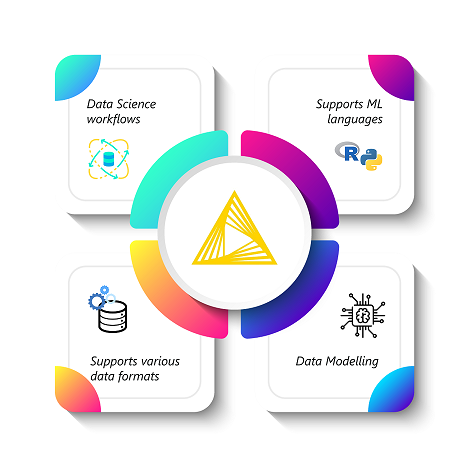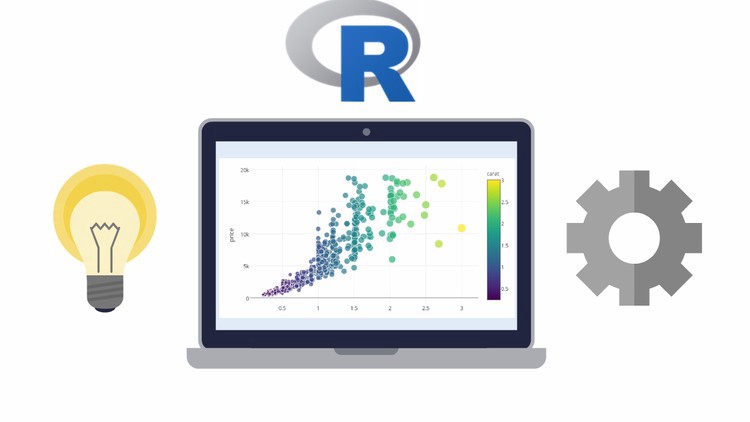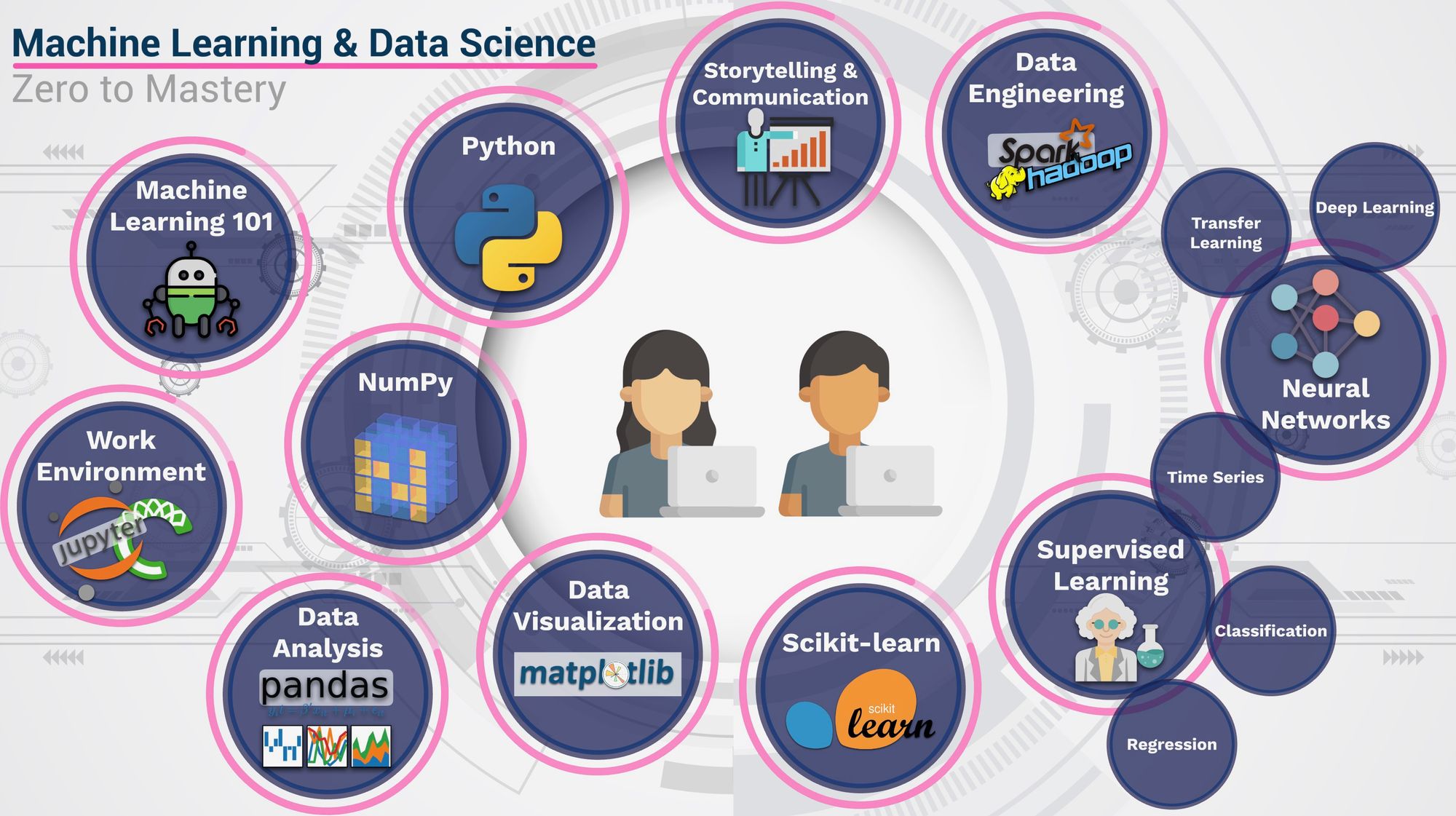All Categories
Featured
Table of Contents
Don't miss this chance to discover from experts regarding the current advancements and techniques in AI. And there you are, the 17 finest data scientific research programs in 2024, consisting of a variety of data scientific research training courses for newbies and seasoned pros alike. Whether you're just starting in your data scientific research job or desire to level up your existing abilities, we've consisted of a variety of information scientific research programs to assist you attain your goals.

Yes. Data science needs you to have an understanding of programming languages like Python and R to control and analyze datasets, construct versions, and create equipment discovering algorithms.
Each training course has to fit three requirements: Much more on that soon. These are viable methods to find out, this overview concentrates on training courses.
Does the training course brush over or avoid particular topics? Is the program taught utilizing prominent programming languages like Python and/or R? These aren't needed, yet practical in most instances so slight choice is provided to these courses.
What is data science? What does a data scientist do? These are the kinds of fundamental questions that an introductory to data scientific research course must address. The complying with infographic from Harvard teachers Joe Blitzstein and Hanspeter Pfister details a normal, which will certainly aid us respond to these questions. Visualization from Opera Solutions. Our objective with this introduction to data science course is to come to be accustomed to the information science process.
The 20-Second Trick For Data Science Courses - Harvard University
The final 3 overviews in this series of write-ups will certainly cover each element of the information science procedure thoroughly. Numerous programs provided below call for standard programming, stats, and probability experience. This requirement is understandable provided that the new content is sensibly progressed, and that these topics commonly have actually several programs committed to them.
Kirill Eremenko's Data Science A-Z on Udemy is the clear victor in terms of breadth and deepness of protection of the information science process of the 20+ courses that qualified. It has a 4.5-star weighted ordinary score over 3,071 testimonials, which positions it among the highest possible rated and most assessed courses of the ones considered.

At 21 hours of content, it is a great size. It does not examine our "usage of common information science devices" boxthe non-Python/R tool choices (gretl, Tableau, Excel) are used efficiently in context.
Some of you may currently recognize R very well, but some might not understand it at all. My objective is to show you exactly how to build a durable design and.
An Unbiased View of Data Science And Machine Learning For Non-programmers

It covers the data science procedure clearly and cohesively using Python, though it lacks a bit in the modeling element. The estimated timeline is 36 hours (six hours each week over six weeks), though it is shorter in my experience. It has a 5-star weighted typical ranking over 2 reviews.
Information Scientific Research Fundamentals is a four-course collection given by IBM's Big Information College. It covers the complete data scientific research procedure and presents Python, R, and a number of other open-source tools. The programs have incredible production value.
It has no review data on the significant review websites that we used for this analysis, so we can not advise it over the above two alternatives. It is totally free. A video clip from the very first module of the Big Information College's Data Scientific research 101 (which is the first course in the Information Scientific Research Fundamentals series).
The Ultimate Guide To Machine Learning Specialization - Course - Stanford Online

It, like Jose's R program listed below, can increase as both introductories to Python/R and intros to information scientific research. Remarkable program, though not suitable for the range of this overview. It, like Jose's Python course over, can double as both introductories to Python/R and intros to data science.
We feed them data (like the young child observing people stroll), and they make forecasts based on that data. Initially, these forecasts may not be exact(like the kid falling ). With every error, they change their parameters somewhat (like the toddler discovering to balance better), and over time, they get better at making accurate forecasts(like the kid finding out to walk ). Studies conducted by LinkedIn, Gartner, Statista, Fortune Organization Insights, World Economic Discussion Forum, and US Bureau of Labor Stats, all point in the direction of the very same pattern: the need for AI and artificial intelligence professionals will only remain to expand skywards in the coming years. Which demand is reflected in the wages used for these positions, with the typical machine learning engineer making in between$119,000 to$230,000 according to various sites. Please note: if you have an interest in collecting insights from data making use of equipment learning rather of device learning itself, then you're (most likely)in the wrong area. Go here instead Data Scientific research BCG. 9 of the training courses are totally free or free-to-audit, while 3 are paid. Of all the programming-related programs, just ZeroToMastery's program calls for no anticipation of programming. This will grant you accessibility to autograded quizzes that check your conceptual understanding, along with shows laboratories that mirror real-world challenges and tasks. Additionally, you can investigate each program in the expertise separately totally free, yet you'll lose out on the graded exercises. A word of care: this program includes swallowing some mathematics and Python coding. Additionally, the DeepLearning. AI area forum is a useful resource, providing a network of mentors and fellow students to seek advice from when you experience problems. DeepLearning. AI and Stanford College Coursera Andrew Ng, Aarti Bagul, Eddy Shyu and Geoff Ladwig Standard coding knowledge and high-school degree math 50100 hours 558K 4.9/ 5.0(30K)Quizzes and Labs Paid Develops mathematical instinct behind ML algorithms Constructs ML models from scrape making use of numpy Video talks Free autograded exercises If you want a totally cost-free alternative to Andrew Ng's program, the just one that matches it in both mathematical deepness and breadth is MIT's Intro to Artificial intelligence. The huge distinction between this MIT program and Andrew Ng's training course is that this program concentrates much more on the math of equipment discovering and deep knowing. Prof. Leslie Kaelbing overviews you with the procedure of acquiring algorithms, comprehending the instinct behind them, and then implementing them from the ground up in Python all without the crutch of a device finding out library. What I discover interesting is that this program runs both in-person (New York City campus )and online(Zoom). Also if you're attending online, you'll have specific attention and can see other pupils in theclass. You'll have the ability to engage with instructors, obtain feedback, and ask inquiries throughout sessions. Plus, you'll obtain accessibility to class recordings and workbooks pretty valuable for capturing up if you miss out on a course or assessing what you discovered. Pupils learn essential ML skills making use of preferred structures Sklearn and Tensorflow, collaborating with real-world datasets. The 5 programs in the learning path highlight functional application with 32 lessons in message and video layouts and 119 hands-on methods. And if you're stuck, Cosmo, the AI tutor, is there to answer your concerns and provide you tips. You can take the training courses individually or the complete understanding course. Component programs: CodeSignal Learn Basic Programming( Python), mathematics, data Self-paced Free Interactive Free You discover much better through hands-on coding You intend to code quickly with Scikit-learn Find out the core ideas of artificial intelligence and develop your initial designs in this 3-hour Kaggle course. If you're positive in your Python abilities and want to directly away enter creating and educating device knowing models, this course is the best course for you. Why? Due to the fact that you'll discover hands-on exclusively via the Jupyter note pads hosted online. You'll first be provided a code instance withexplanations on what it is doing. Artificial Intelligence for Beginners has 26 lessons completely, with visualizations and real-world examples to help digest the web content, pre-and post-lessons tests to aid preserve what you've learned, and additional video lectures and walkthroughs to further enhance your understanding. And to maintain things fascinating, each brand-new maker discovering subject is themed with a different society to provide you the sensation of expedition. Moreover, you'll also find out exactly how to manage huge datasets with devices like Flicker, understand the usage instances of device learning in areas like all-natural language processing and image processing, and compete in Kaggle competitors. Something I like about DataCamp is that it's hands-on. After each lesson, the program forces you to use what you've discovered by finishinga coding workout or MCQ. DataCamp has 2 various other profession tracks associated with machine learning: Artificial intelligence Scientist with R, an alternate variation of this course utilizing the R shows language, and Machine Knowing Engineer, which teaches you MLOps(model deployment, operations, tracking, and upkeep ). You must take the last after completing this course. DataCamp George Boorman et alia Python 85 hours 31K Paidregistration Quizzes and Labs Paid You want a hands-on workshop experience making use of scikit-learn Experience the whole equipment finding out workflow, from constructing versions, to training them, to releasing to the cloud in this cost-free 18-hour long YouTube workshop. Therefore, this program is incredibly hands-on, and the issues provided are based upon the real life as well. All you need to do this course is an internet link, standard knowledge of Python, and some high school-level stats. As for the collections you'll cover in the course, well, the name Artificial intelligence with Python and scikit-Learn ought to have currently clued you in; it's scikit-learn right down, with a spray of numpy, pandas and matplotlib. That's good news for you if you have an interest in pursuing a device discovering job, or for your technological peers, if you want to step in their shoes and understand what's feasible and what's not. To any students auditing the program, rejoice as this project and various other method tests come to you. Instead than dredging with thick books, this expertise makes mathematics friendly by taking advantage of short and to-the-point video clip lectures loaded with easy-to-understand examples that you can locate in the real life.
Table of Contents
Latest Posts
Software Development Interview Topics – What To Expect & How To Prepare
The 3-month Coding Interview Preparation Bootcamp – Is It Worth It?
How To Prepare For A Front-end Engineer Interview In 2025
More
Latest Posts
Software Development Interview Topics – What To Expect & How To Prepare
The 3-month Coding Interview Preparation Bootcamp – Is It Worth It?
How To Prepare For A Front-end Engineer Interview In 2025